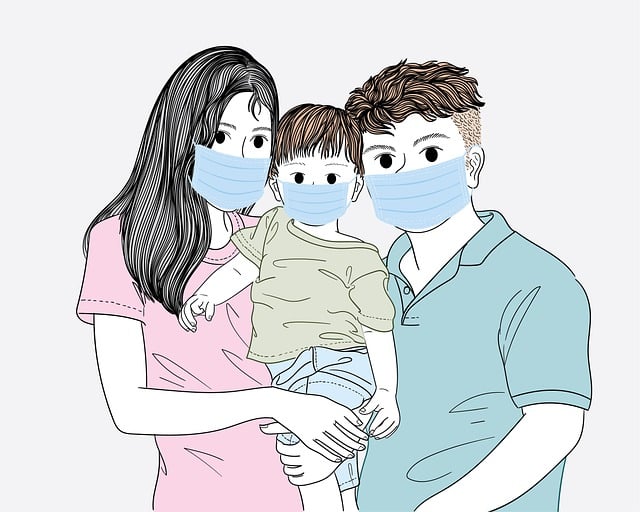Parental Rights: Navigating Child Welfare System for Protection
The child welfare system, governed by a strict legal framework, aims to protect children while balan…….
We are At Your Service
In the intricate web of child welfare systems, the role of a dedicated attorney is pivotal in safeguarding the rights and interests of minors. This article delves into the essential services provided by the DHS-Child Welfare Attorney in Jackson County, Oregon, exploring their functions, impact, and the broader implications for both local communities and the global stage. By examining various facets, from legal strategies to technological innovations, we aim to offer a comprehensive understanding of this critical profession and its evolving landscape.
The DHS-Child Welfare Attorney in Jackson County, Oregon, is a legal professional within the Department of Human Services (DHS), specifically tasked with representing and advocating for children involved in dependency, neglect, or abuse cases. Their primary objective is to ensure that the best interests of the child are upheld through the legal system. This role involves complex navigation of family law, child protection statutes, and court procedures.
The modern concept of child welfare attorneys emerged from a growing awareness of the need for specialized legal representation in family matters. In Oregon, as in many states, the role has evolved over time in response to changing social norms and legal standards. Historically, children’s interests were often overlooked in legal proceedings, leading to reforms that emphasized the necessity of dedicated legal advocates.
The impact of DHS-Child Welfare Attorneys extends far beyond Jackson County, Oregon. Best practices and strategies developed locally can have global implications, especially in countries with emerging or transitioning child welfare systems. International organizations, such as UNICEF and the World Health Organization, promote models of effective child protection, influencing legal frameworks worldwide.
The demand for DHS-Child Welfare Attorneys is driven by the overall health of the child welfare system in any given region. Jackson County’s economic factors, such as job growth, poverty rates, and social services funding, influence the volume and complexity of cases handled by these attorneys. A robust local economy may lead to more resources for legal aid, while economic downturns can strain limited legal services.
Private law firms often collaborate with DHS or non-profit organizations to provide legal services for child welfare cases. These partnerships can offer specialized expertise and resources, ensuring quality representation for children. Government funding plays a significant role in supporting these attorneys’ work, with allocations determined by state and local budgets.
In Jackson County, an attorney successfully represented a young client, ‘Sarah’, who had been through multiple foster homes due to parental neglect. Through meticulous legal argument, the attorney secured a permanent placement with a loving family, ensuring Sarah’s stability and well-being. This case highlighted the attorney’s ability to navigate complex custody issues and advocate for the child’s best interests.
A challenging case involved ‘David’, whose parental rights were temporarily suspended due to substance abuse. The DHS attorney worked collaboratively with David, helping him complete rehabilitation programs and regain custody of his children. This successful outcome demonstrated the attorney’s commitment to supporting families in their journey towards reunification.
The DHS-Child Welfare Attorney in Jackson County, Oregon, stands as a cornerstone of protection for vulnerable youth, navigating complex legal landscapes to ensure their rights are upheld. This article has explored various facets of this critical role, from global trends and economic considerations to technological advancements and policy frameworks. By addressing challenges and highlighting successful case studies, we’ve gained insights into the future prospects of this profession, emphasizing its evolving nature and enduring importance.
Q: What is the primary goal of a DHS-Child Welfare Attorney?
A: The primary goal is to advocate for the best interests of children involved in dependency or neglect cases, ensuring their rights are protected within the legal system.
Q: How do global trends impact local child welfare practices?
A: Global trends influence local systems through shared best practices and international standards, shaping legal frameworks and service delivery models.
Q: Can you explain the role of technology in modern child welfare law?
A: Technology enhances efficiency in case management, improves legal research, enables remote services, and holds potential for AI-assisted decision-making in the future.
Q: What are some common challenges faced by these attorneys?
A: Common challenges include case overload, limited resources, complex family dynamics, and ensuring cultural sensitivity in their practice.
Q: How can communities support DHS-Child Welfare Attorneys?
A: Communities can provide financial support, volunteer services, and raise awareness to ensure these attorneys have the resources needed to serve children effectively.

The child welfare system, governed by a strict legal framework, aims to protect children while balan…….

Oregon family law prioritizes child welfare, focusing on physical health, emotional well-being, safe…….

Child welfare legal services in Oregon are vital in protecting the rights of vulnerable youth, offer…….

Navigating complex DHS child welfare cases can be simplified with this guide, which clarifies interv…….

Jackson County Child Advocacy acts as a crucial network of support for children affected by abuse or…….

Jackson County prioritizes child safety with dedicated child advocacy teams conducting thorough welf…….

Jackson County Child Advocacy is a leading community resource committed to protecting vulnerable chi…….

Oregon Family Law offers a robust legal framework for child welfare cases, emphasizing the best inte…….